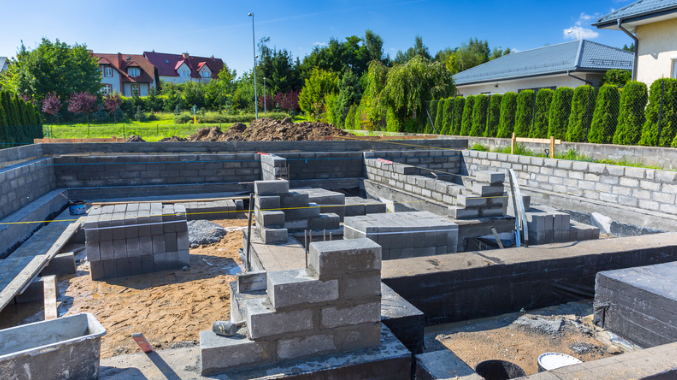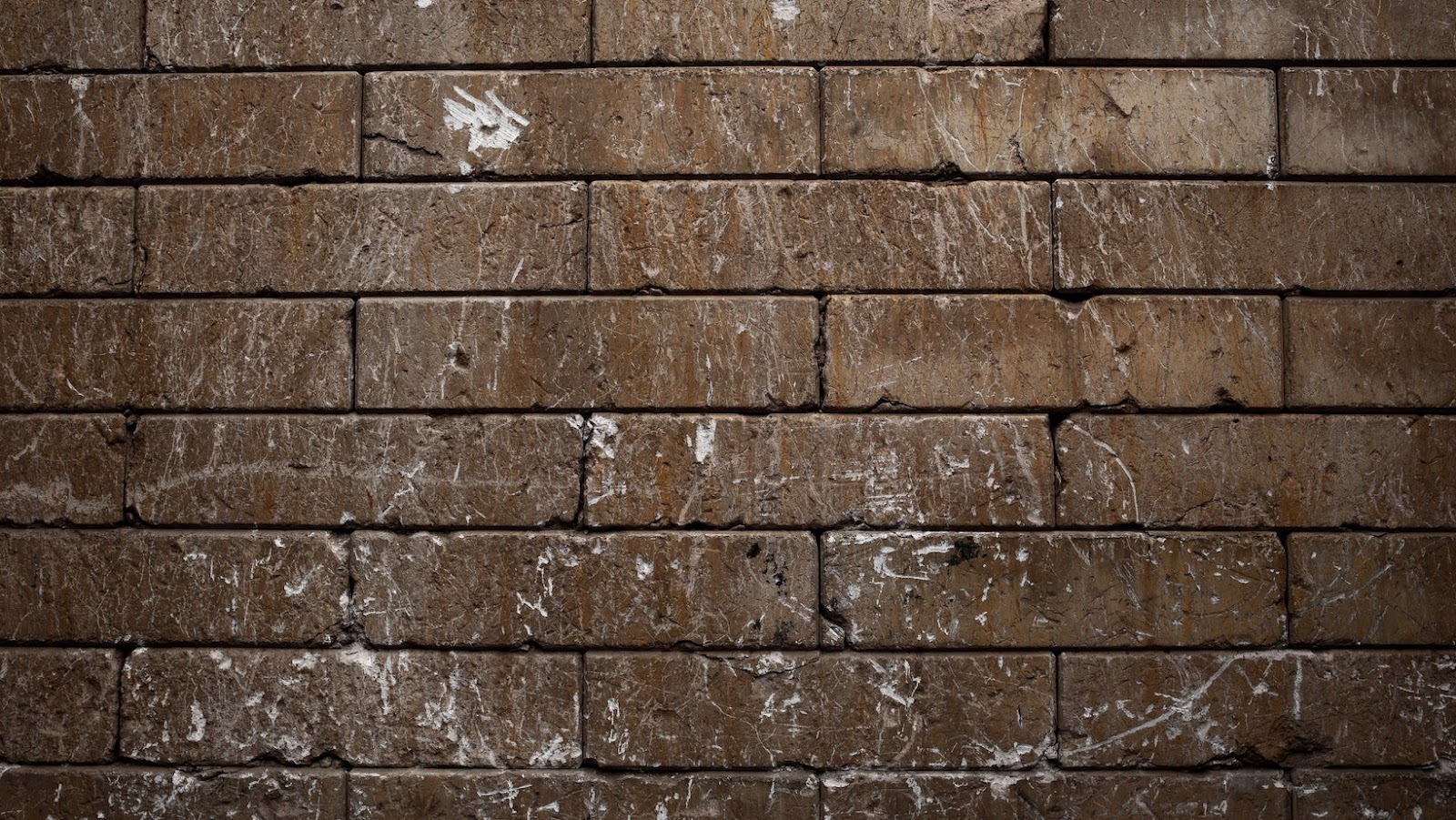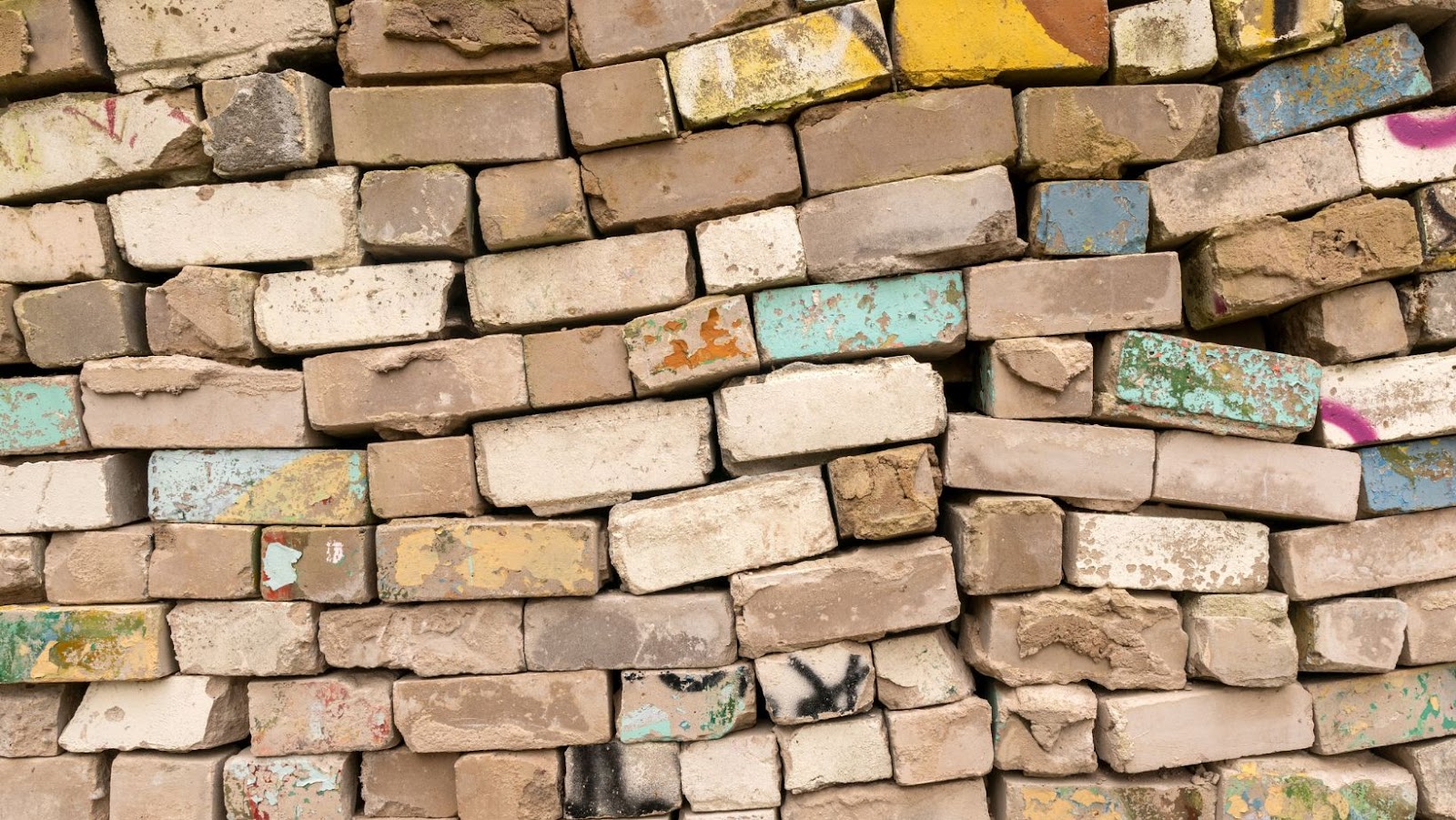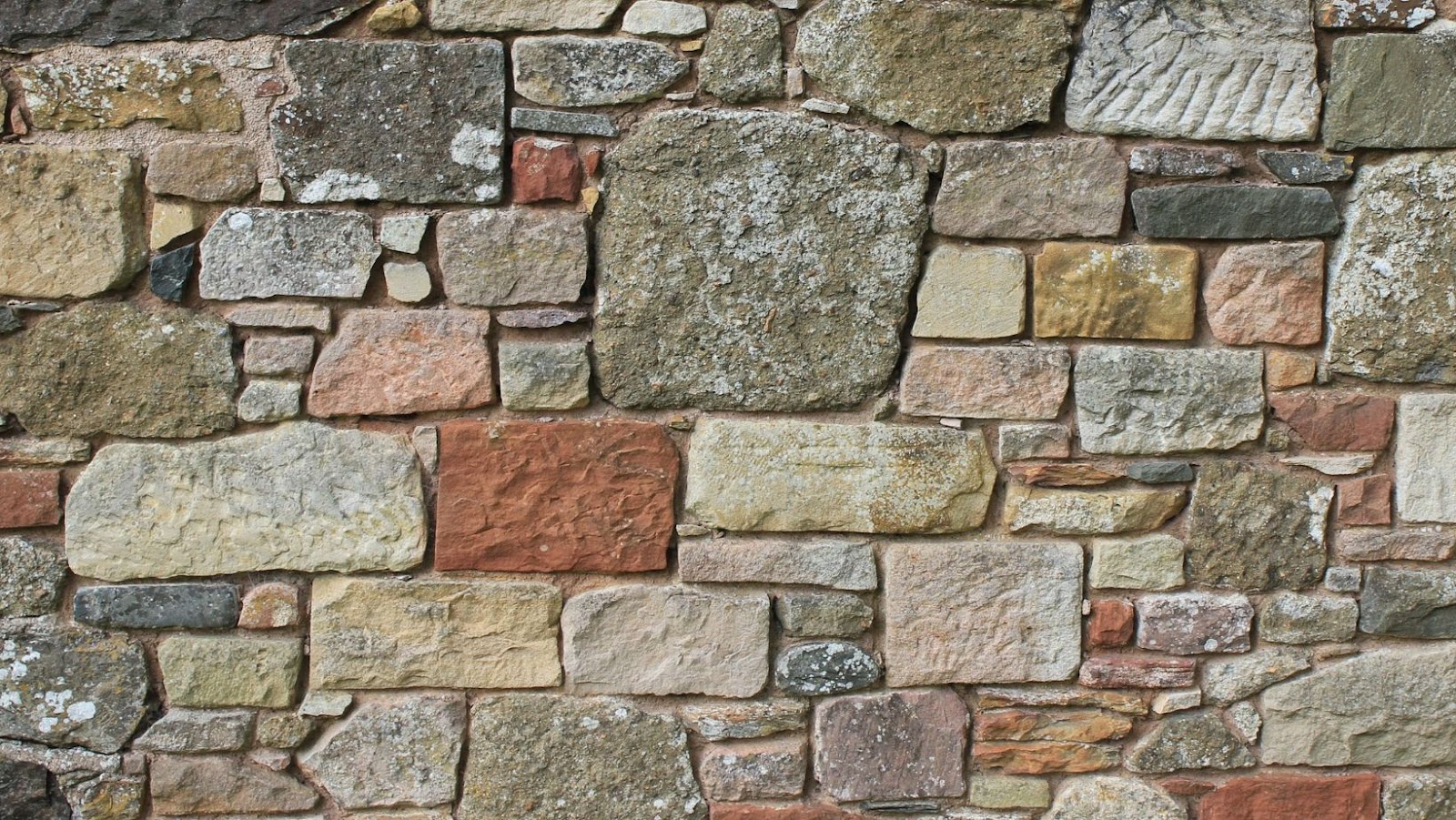Concrete Block: Definition, Types, And Uses

Concrete Block: Definition And Types
Concrete blocks are a building material made from concrete and cement, which is used in a variety of construction projects all around the world. The material is strong and weather-resistant, making it an ideal choice for both homes and businesses.
Concrete blocks are available in a variety of sizes and types, and each has its own unique benefits in the context of the construction project.
Let’s take a closer look at the various types of concrete block and how they can be used.
Definition of Concrete Block
A concrete block is a building material made from Portland cement, aggregates such as sand or fine gravel, and water. Concrete blocks are used for a variety of construction projects because of their durability, strength, and low cost. There are two main types of concrete blocks: hollow and solid. Hollow blocks have a cavity in the center that reduces their weight and improves their insulation properties. Solid blocks do not have a cavity and are heavier, making them more suitable for load-bearing walls.
In comparison to brick construction, concrete block construction is often preferred for its lower cost and faster installation times. In Arizona, where extreme heat and high winds are common, concrete block construction is often the preferred choice for its durability and energy efficiency.
Uses for concrete blocks include building walls, foundations, retaining walls, and fences. Pro tip: Always ensure that your concrete block construction meets local building codes and regulations to ensure the structure’s stability and safety.
Types of Concrete Blocks
Concrete blocks are precast construction materials used in a variety of building projects due to their durability, affordability, and resistance to various weather conditions. There are several types of concrete blocks optimized for specific applications in construction, including:
1. Hollow concrete blocks: These have hollow centers that reduce their overall weight and offer better thermal insulation for buildings.
2. Solid concrete blocks: These are heavyweight blocks with a dense structure that offers higher strength and durability for building foundations, walls, and other load-bearing structures.
3. Lightweight concrete blocks: These are lightweight blocks that offer better insulation and resistance to fire and pests.
4. Aerated autoclaved concrete blocks: These blocks have a porous structure that makes them lightweight, insulating, and easy to cut and shape for different building projects.
Concrete blocks are an excellent alternative to traditional brick construction, especially in places like Arizona where the climate requires more robust and weather-resistant building materials.
Solid Concrete Block
Solid concrete blocks are dense, sturdy, and commonly used in construction for their strength and stability.
Here are some facts about concrete blocks worth knowing:
- Concrete blocks come in different sizes, shapes, and strengths, such as hollow, solid, and interlocking.
- Solid concrete blocks are resistant to harsh weather, insects, and fire, making them a popular choice for building strong foundations and walls.
- Compared to bricks, concrete blocks are larger, faster to install, and can reduce construction time and costs.
- In Arizona’s hot and dry climate, concrete block construction is an excellent choice for its insulation properties and provides a better chance of resisting heat and fire compared to other options.
Pro tip: When using concrete blocks, be sure to follow safety guidelines, such as wearing protective gear and using proper tools to prevent injuries. Always consult a professional before starting a construction project.
Hollow Concrete Block
Hollow concrete blocks are a common type of concrete block that have unique advantages and applications in construction projects compared to solid concrete blocks or traditional bricks. Hollow concrete blocks have a rectangular shape and are made of cement, water, and aggregates like sand and gravel. The blocks have hollow cores that reduce their weight and improve their insulating properties. The hollow cores can also be filled with insulating materials like foam for added energy efficiency.

The benefits of using hollow concrete blocks in construction include faster construction time, lower transportation and labor costs, improved fire resistance, and better thermal insulation. In Arizona, where the weather can be hot and dry, the use of hollow concrete blocks for construction can help reduce cooling costs and improve the energy efficiency of buildings.
Cellular Concrete Block
Cellular concrete block is a type of concrete block that is lightweight, durable, and has excellent insulation properties. It is made from a mixture of cement, water, and foam that is poured into molds and allowed to set. The resulting blocks are ideal for use in construction projects that require insulation, fire resistance, and soundproofing, such as schools, hospitals, and office buildings.
Compared to traditional concrete blocks, cellular concrete blocks have a lower density and weight, making them more cost-effective to transport and easy to work with. Additionally, the thermal insulation and soundproofing properties of cellular concrete blocks are superior to traditional concrete blocks.
When it comes to construction in Arizona, cellular concrete blocks are a better option than brick due to their lighter weight and superior insulation properties, making them ideal for a hot and dry climate.
Concrete Block vs Brick Construction Best For Arizona
Concrete blocks and bricks are popular building materials for construction projects. Both provide great protection against the elements, but there are some pros and cons to each when it comes to construction in Arizona.
This section will discuss the differences between concrete block and brick construction and how each fares in the Arizona climate.
Comparison of Concrete Block vs. Brick Construction
When it comes to construction, deciding between concrete block and brick involves a number of considerations, including cost, durability, and design flexibility. In Arizona, due to its arid climate and soil conditions, selecting the right construction material is crucial to the quality and longevity of the structures built.
Concrete blocks are made from cement, sand, and small aggregate, and offer several advantages over bricks, including:
- More affordable material and labor costs, as well as faster installation times.
- Excellent fire resistance and thermal mass, which can help lower energy bills in extreme climates.
- Greater design flexibility and customizable options.
Brick construction, on the other hand, boasts longevity, minimal maintenance, and high resale value. However, it may not be the best choice for regions where earthquakes and strong winds are prevalent.
Ultimately, the choice between concrete block and brick construction will depend on individual needs, budget, and local construction requirements.
Advantages of Concrete Block Construction
Concrete block construction has several advantages over traditional brick construction, especially when it comes to building in Arizona’s climate.
Concrete blocks are much more durable and weather-resistant than brick, making them ideal for areas with high temperatures and frequent temperature changes.
In addition, concrete blocks are more energy-efficient, as they provide better insulation which can drastically reduce energy costs.
Concrete block construction is also faster and more cost-effective, as it requires less labor and materials.
Lastly, concrete blocks are highly versatile and can be used for a variety of construction projects, such as walls, foundations, and retaining walls.
Overall, concrete block construction is the superior choice over brick construction when building in Arizona due to its durability, energy-efficiency, cost-effectiveness, and versatility.
Durability
Durability is a key factor to consider when choosing between concrete blocks and bricks for construction, especially in regions like Arizona where extreme weather conditions can be challenging.
Concrete blocks are more durable than bricks due to their composition and manufacturing process, making them ideal for use in construction projects in Arizona. They are made from cement and aggregates, which are mixed and molded into various shapes and sizes. Concrete blocks are reinforced with steel bars or other materials for added strength and durability, making them resistant to weather-related damage, such as cracking or crumbling.
Bricks, on the other hand, are made from clay that is fired in a kiln. While they are sturdy, they are more susceptible to damage from moisture and extreme temperatures, requiring regular maintenance and repairs to maintain their structural integrity. Therefore, if you are looking for a durable and low-maintenance option for construction projects in Arizona, concrete blocks are a better choice than bricks.
Fire Resistance
When it comes to fire resistance in construction, concrete blocks have a clear advantage over bricks. With a thermal resistance of up to four hours, concrete blocks offer a much higher level of fire protection than bricks, which typically provide a thermal resistance of one hour or less.
In addition to their superior fire resistance, the use of concrete blocks also makes construction much faster and more cost-effective compared to brick. Since Arizona is prone to extreme heat, using concrete blocks as building material is a wise choice as it is more heat resistant than bricks.
Concrete block construction also requires less maintenance than brick, and the blocks can be easily recycled at the end of their lifespan.
In nutshell, in construction in Arizona, where heat resistance is important, concrete block construction is the best bet.
Energy Efficiency
When it comes to energy efficiency, concrete blocks have some advantages over bricks in construction.
Concrete blocks have a higher thermal mass than bricks, meaning they can absorb and store more heat energy. This thermal mass reduces energy consumption in the house by regulating indoor temperatures and reducing the need for heating and cooling.
Concrete blocks also have higher insulation properties than bricks, so they can effectively reduce heat transfer through walls and limit air leaks.
When compared to traditional brick construction, concrete blocks are more economical, require less time to lay, and can be stronger and more durable in certain settings.
In Arizona’s hot, dry climate, concrete blocks are an ideal construction material because of their ability to regulate temperature and reduce energy consumption in homes and buildings.
So, if you’re looking for an energy-efficient construction material for your Arizona home or building, concrete blocks may be an excellent choice over bricks.
Uses of Concrete Blocks in Construction
Concrete blocks are versatile and durable building materials that find multiple uses in construction, and they are an excellent alternative to traditional brick construction materials.
Here are a few uses of concrete blocks in construction:
Foundation walls: Concrete blocks are ideal for laying the foundation of a building because of their durability and strength.
Retaining walls: They can be used to create retaining walls, which are essential for landscaping and erosion control.
Boundary walls: Concrete blocks are perfect for constructing boundary walls around properties, creating privacy and security.
Exterior walls: They are also used in exterior walls, providing insulation, and ensuring a long-lasting, weather-resistant structure.
When compared to brick construction, concrete blocks have superior insulation properties, making them a suitable choice for a state like Arizona that requires houses to stay cool in the hot summer months. Pro tip: Consult a professional engineer to determine the appropriate material for your construction project.
Walls
When it comes to building walls, concrete blocks offer several advantages over bricks, especially in the arid climate of Arizona.
Concrete block is made from a blend of cement, water, and aggregates such as sand or gravel. They can be solid or hollow-core bricks and come in a variety of sizes, colors, and textures.
Here are some uses of concrete block as compared to bricks in construction:
Strength: Concrete block walls are stronger and more durable than brick walls, making them ideal for holding up against Arizona’s weather conditions.
Cost: Concrete blocks are cheaper than bricks, making them more cost-effective to build walls.
Fire-resistance: Concrete blocks have better fire resistance properties compared to bricks that are more prone to crack and break during extreme fire conditions.
Need for insulation: The hollow-core version of concrete blocks can be used the same way that bricks are used and offer greater insulation value than solid concrete wall construction.
Overall, concrete block construction is an eco-friendly, cost-effective, and reliable alternative to brick construction for building walls in Arizona.
Foundations
When it comes to construction, choosing between concrete blocks and bricks can be a challenging decision. Each material has its unique strengths and weaknesses that need to be considered for specific applications, especially in areas with hot and dry climates like Arizona.
Concrete blocks are a popular choice due to their affordability, durability, and thermal mass properties. They are made from Portland cement, sand, water, and gravel, and come in different shapes and sizes. Common applications of concrete blocks include foundation walls, retaining walls, and basement walls. In Arizona, where temperatures can reach extremes, concrete blocks are an excellent choice because they can resist heat better than bricks.

Bricks, on the other hand, are commonly used for aesthetic purposes because of their color and texture. They are made from clay, molded into a rectangular shape, and then fired at high temperatures to harden them. Bricks are known for their insulating properties, making them an ideal choice for colder climates. However, they can crack or chip in hot and dry areas like Arizona, which makes them less practical.
In summary, when it comes to construction projects in Arizona, choosing concrete blocks as opposed to bricks is the best option for their ability to resist high temperatures and harsh climatic conditions.
Retaining Walls
Retaining walls are structures designed to hold soil behind it and prevent erosion or landslides. They can be built using a variety of materials, including concrete blocks and bricks. When it comes to construction in Arizona, concrete blocks are the most popular choice for retaining walls due to their durability, strength, and low-maintenance requirements. Concrete blocks are made from a mixture of cement, sand, and aggregate, making them less susceptible to weather damage and erosion than bricks. In addition, they are versatile and can be used for a variety of projects beyond retaining walls, including building foundations, walkways, and patio walls. While bricks may have a more natural and traditional look, they are often less suitable for Arizona’s hot and dry climate due to their porous nature, making them more prone to cracking and weathering over time.
In summary, for the best and most durable construction of retaining walls in Arizona, it’s recommended to use concrete blocks over bricks.
Walkways and Pavers
When it comes to choosing between using concrete blocks or bricks for walkways and pavers, there are several factors to consider. In Arizona, where the climate is hot and dry, concrete blocks can be a more durable and cost-effective option for construction.
Concrete blocks, also known as cinder blocks, are made from a mixture of cement, water, and aggregates such as sand, gravel, or crushed stone. They are known for their strength, durability, and fire resistance. Bricks, on the other hand, are made from molded clay that is baked in a kiln. They are known for their aesthetic appeal, and they are often used in construction for their classic look. In Arizona’s hot climate, concrete blocks are better suited for outdoor construction due to their ability to withstand extreme temperature fluctuations and moisture. They are also more affordable and easier to install than bricks. However, if you’re looking for a more traditional or decorative aesthetic, bricks may be the better choice.
Ultimately, the choice between using concrete blocks or bricks depends on your specific construction needs and priorities.
Best Uses of Concrete Blocks in Arizona Construction
Concrete blocks are a popular choice for construction in Arizona due to its durability, efficiency, and cost-effectiveness. Here are some of the best uses of concrete blocks in Arizona construction:
Foundations: Concrete blocks are strong enough to support the weight of entire buildings and work well as foundation walls.
Retaining Walls: Concrete blocks are ideal for retaining walls because of their strength and ability to withstand the force of soil.
Fences and Walls: Concrete blocks can also be used to build fences and walls around buildings to increase security.
Fire Pits: Concrete blocks can be used to build fire pits in outdoor spaces.
Compared to bricks, concrete blocks are cheaper to produce and offer a wider range of design options. Additionally, they provide better insulation, are more fire-resistant, and require less maintenance. Therefore, concrete blocks are a better option for construction in Arizona’s hot and dry climate.
Climate Considerations
When deciding between concrete blocks vs bricks for construction in Arizona, climate is an important consideration to keep in mind. Concrete blocks, due to their high thermal mass, are better suited to handle the extreme temperature fluctuations common in the state.
Here are some key points to consider when it comes to climate and choosing between concrete blocks vs bricks for construction:
In hot and dry regions like Arizona, concrete blocks are ideal for building homes and structures. These blocks absorb heat during the day and release it at night, helping to regulate temperature and keep indoor spaces cool. Bricks are also good at keeping indoor spaces cool, but their low thermal mass means that they may not be as effective as concrete blocks in extreme climates. In colder regions, bricks can help retain heat and keep indoor spaces warm, making them a better choice in those areas. Ultimately, the choice between concrete blocks vs bricks will depend on your specific construction needs and the climate in your region.
Cost Considerations
Cost considerations play a significant role in choosing between concrete blocks and bricks for construction projects in Arizona. Although both have their unique benefits and weaknesses, their cost implications generally guide the decision-making process.
Concrete blocks are generally cheaper and quicker to install, making them an ideal choice for large-scale, commercial construction projects. They also offer enhanced insulation and durability compared to traditional bricks. On the other hand, bricks have exceptional aesthetic appeal and may be more appropriate for smaller residential projects, historic renovations, or specialty masonry work. When considering the cost of materials, labor, and overall project scope, concrete blocks often offer the best value for Arizona construction projects.
Pro Tip: Consult with your contractor, architect, or building specialist to determine the most cost-effective and suitable materials for your construction project.
Style and Design Considerations
When it comes to construction in Arizona, there are some important style and design considerations to keep in mind when choosing between concrete block and brick.
Concrete block is a popular choice due to its affordability, durability, and versatility. This material comes in a range of sizes, shapes, and colors, making it easy to match any design vision. Brick, on the other hand, is more expensive than concrete block but offers a classic look and feel that many homeowners love. It comes in a range of colors, sizes, and finishes, making it a versatile choice for many different construction projects.
When choosing between concrete block and brick, it’s important to consider factors such as cost, durability, and style, as well as the specific needs of your Arizona construction project. A professional contractor can help you make the right choice based on your unique needs and preferences. Pro tip: Regardless of which material you choose, make sure to work with a licensed and experienced contractor to ensure the highest quality craftsmanship and safety standards.

 The Benefits Of Outdoor Sofa Deep Seating
The Benefits Of Outdoor Sofa Deep Seating  This Method has Been Used for Centuries
This Method has Been Used for Centuries  The Different Types of Bonds
The Different Types of Bonds  Solar Panel Cost And Efficiency
Solar Panel Cost And Efficiency  The Most Comfortable Deep Seating Outdoor Furniture
The Most Comfortable Deep Seating Outdoor Furniture  Maintaining Your Glass Cabinet Doors
Maintaining Your Glass Cabinet Doors